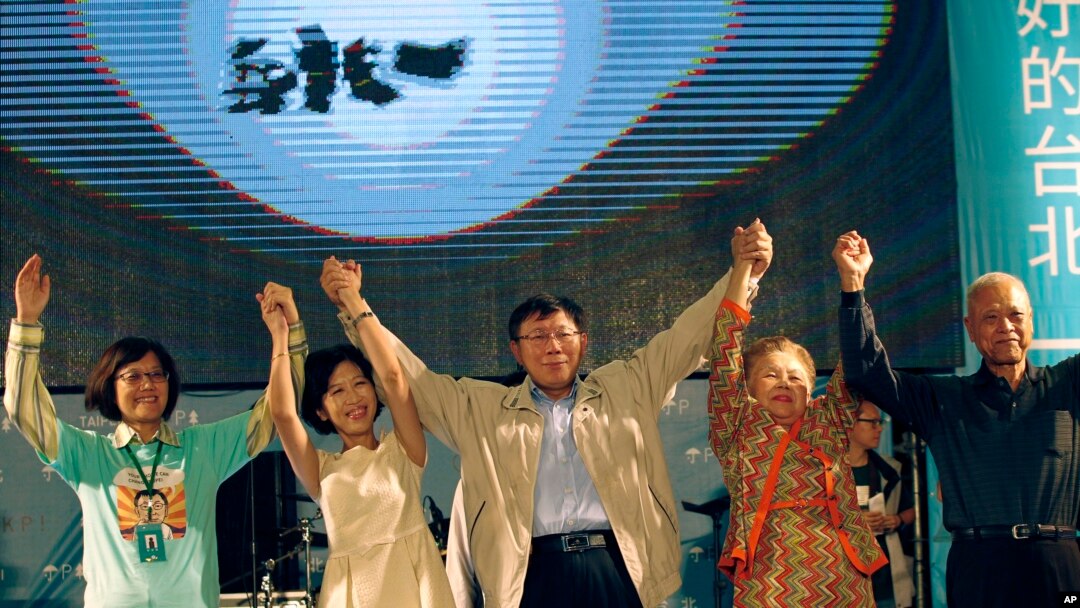Taiwan’s ruling party, known for its engagement with old enemy China, suffered a worse than expected defeat in local elections Saturday.
The results hurt the Nationalist Party’s odds of holding the presidency in 2016 and may slow talks with Beijing. The elections also gave momentum to the chief opposition party, which takes a tougher stance on China.
The Nationalist Party lost the top jobs in nine cities and counties Saturday in island-wide elections considered a midterm test for President Ma Ying-jeou. Polls had forecast just three losses.
George Tsai, political science professor at Chinese Cultural University in Taipei, said Ma and the Nationalists, or KMT party, must fight now to hold public support for deals with China.
“Ma Ying-jeou will be further challenged from within and without (the party) and the cross-strait relation will face challenges ahead, and KMT people might jump boat and challenge his authority," said Tsai. "It’s going to be difficult for Ma Ying-jeou. People are fed up, though, with his governance.”
Ma set aside political disputes with China after taking office in 2008, leading to talks that have generated 21 deals on trade, transit and investment. Beijing sees self-ruled Taiwan as part of its territory and hopes those agreements lead to unification after more than 65 years of hostility. Ma’s government looks to the deals as support for Taiwan’s export-reliant, half-trillion-dollar economy.
But many Taiwanese feel uneasy about forging stronger ties with China, which has never renounced threats to take Taiwan militarily if needed. In March, thousands of people occupied parliament and surrounding streets in Taipei to oppose stronger ties without greater transparency.
Taiwan’s chief opposition, the Democratic Progressive Party, advocated keeping more distance from Beijing when it ruled from 2000 to 2008. The party's stance angered China, making agreements difficult and occasionally raising the specter of a military strike.
The opposition party says now that it is open to talks with Beijing, but not on the premise that both sides belong to one country. It picked up seven seats in elections Saturday.
The arrival of Nationalist Party mayoral candidate Sean Lien at a rally in Taipei failed to offer the support that Lien needed to beat his rival, Ko Wen-je, a medical doctor with no party affiliation. Voters also turned the Nationalists out of five other cities and three counties.
Taiwanese Premier Jiang Yi-huah resigned Saturday to take responsibility for the losses, and a cabinet spokeswoman said the whole cabinet might be reshuffled. Ma, who is also chairman of the Nationalists, bowed in apology at a news conference Saturday and pledged to reform the party.
He said the Nationalist Party would not be easily knocked down. It hasn't been knocked down in the past, Ma said, and it won’t be today. He told the party now to wipe away the tears and stay united to fight for the party and for Taiwan.
Analysts in Taiwan expect the government to keep up relations with China before the 2016 presidential race. The two sides are already negotiating a deal to cut import tariffs on thousands of goods and studying each side’s launch of a consular-style office on the other's soil.


